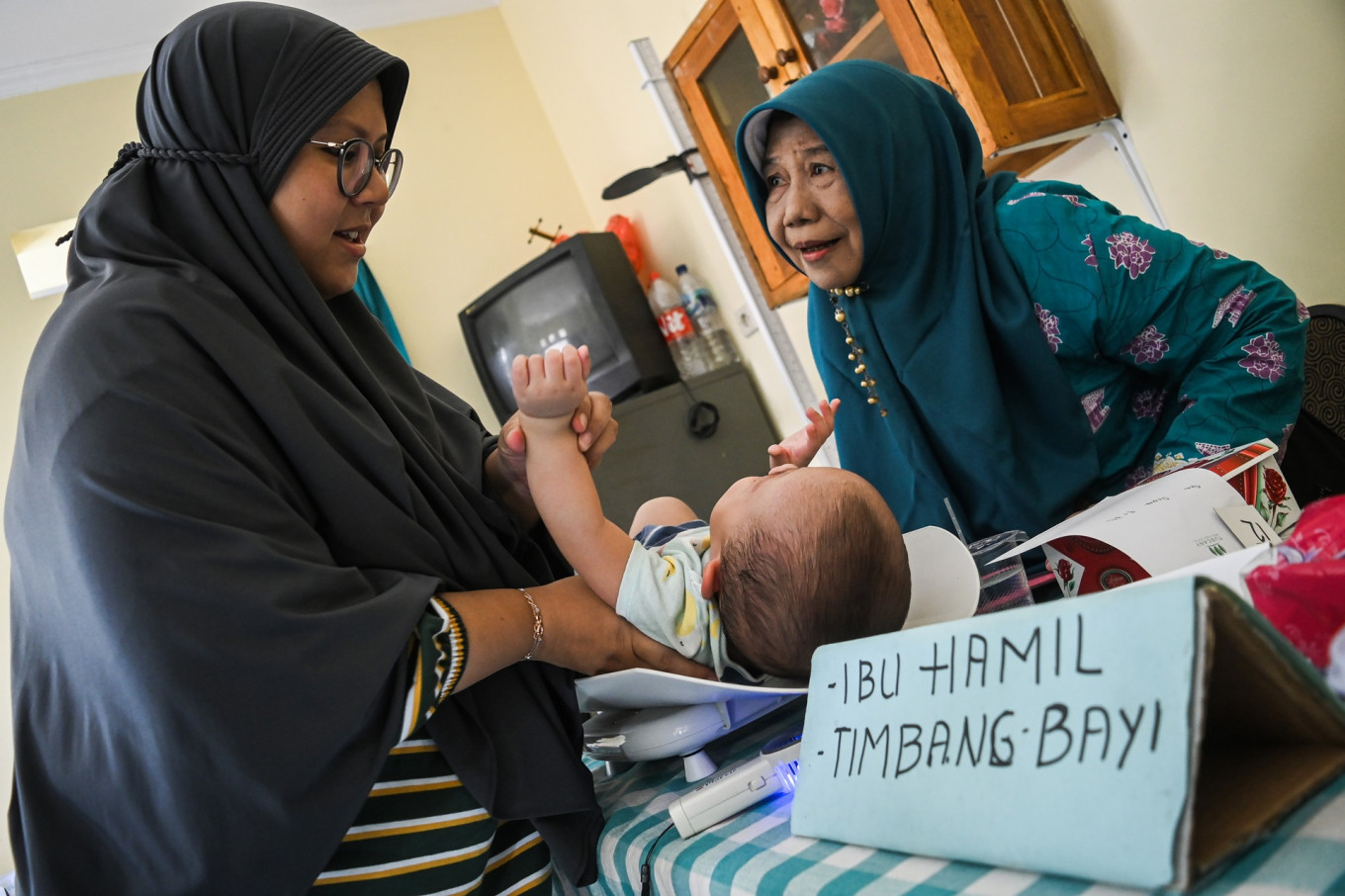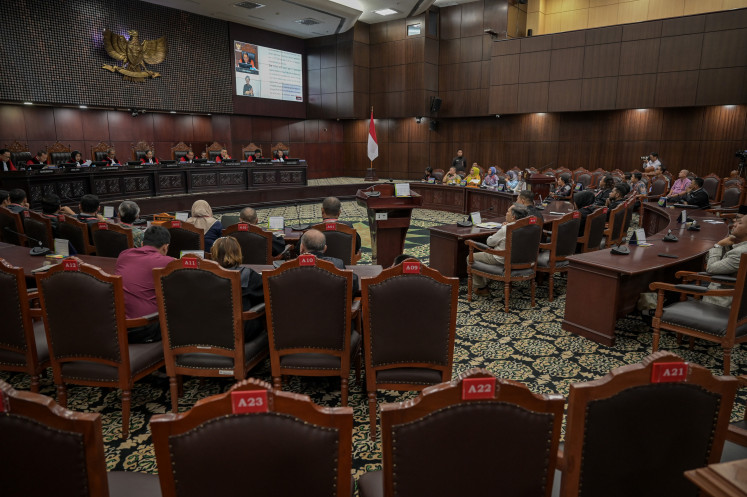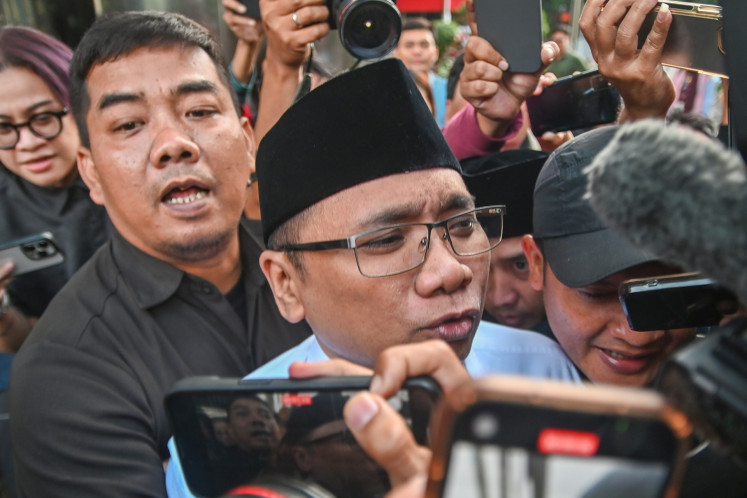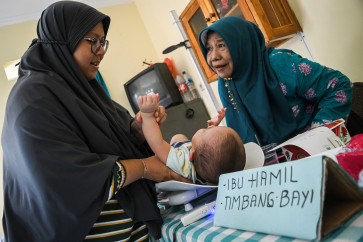Popular Reads
Top Results
Can't find what you're looking for?
View all search resultsPopular Reads
Top Results
Can't find what you're looking for?
View all search resultsNew law seeking fathers’ involvement in childcare falls short
Change text size
Gift Premium Articles
to Anyone
I
n a country that has been named among the most “fatherless” in the world, lawmakers' decision to declare child-rearing a shared responsibility between partners in the recently passed Maternal and Child Welfare Law has garnered mixed responses, with critics saying the provision, which lacks both a monitoring mechanism and sanctions for violations, is insufficient to ensure that fathers will take a more active role.
The new law aims to streamline existing regulations to improve the welfare of parents and children during the first 1,000 days of the babies’ lives in the hope of curbing high maternal and infant mortality and stunting rates.
Passed unanimously by the House of Representatives in a plenary session on Tuesday, the legislation extends paid maternity leave from three months to a maximum of six for mothers with certain medical conditions, if they can provide a doctor’s note.
The law also grants legal protections for mothers taking maternity leave or leave to recover from a miscarriage, preventing them from being fired during or because of that period.
Meanwhile, expectant fathers have the right to take up to five days of leave to accompany their wives for the birth of their child, compared to the two days stipulated by the previous regulation.
The law also says parents share the responsibility to ensure the survival of their children and nurture their development, among other duties. A previous draft ascribed these responsibilities only to the mothers.
Read also: New Maternal & Child Welfare Law could widen inequity: Komnas Perempuan



















